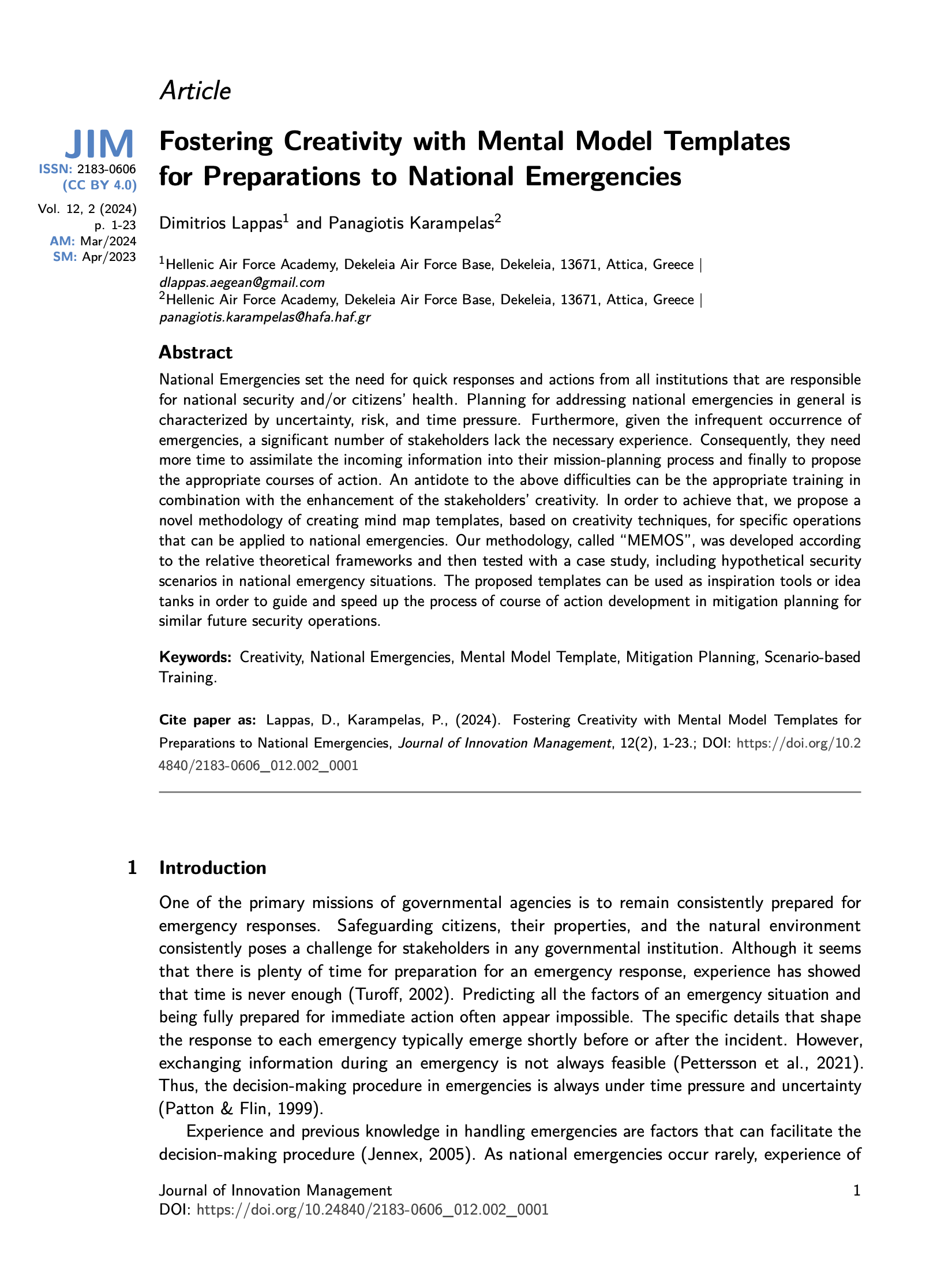Fostering Creativity in Order to Develop Mental Model Templates for Planning in National Emergencies
Main Article Content
Abstract
National Emergencies set the need for quick responses and actions from all institutions that are responsible for national security and/or citizens’ health. Course of action development as part of mitigation planning in such situations, is a complex and difficult procedure because of the uncertainty of the future events, the risk associated with decisions for human actions and the time pressure because of the emergency. This means that planning for addressing national emergencies is not a common and simple task. Moreover, because emergencies appear seldom, most of the stakeholders have lack of experience. Thus, they need more time to assimilate the incoming information into their mission planning process and finally to propose the appropriate courses of actions. An antidote to the above difficulties can be the appropriate training in combination with the enhancement of the creativity of the stakeholders. In order to address that, we propose a novel methodology of creating mind map templates, based on creativity techniques, for specific operations that can be applied to national emergencies. Our methodology, called “MEMOS”, was developed according to the relative theoretical frameworks and then tested with a case study, including hypothetical security scenarios in national emergency situations. The proposed templates can be used as inspiration tools or idea tanks in order to guide and speed up the process of course of action development in mitigation planning for similar future security operations.
Article Details
Authors who publish with this journal agree to the following terms:
- Authors retain copyright and grant the journal right of first publication with the work simultaneously licensed under a Creative Commons Attribution License that allows others to share the work with an acknowledgement of the work's authorship and initial publication in this journal.
- Authors are able to enter into separate, additional contractual arrangements for the non-exclusive distribution of the journal's published version of the work (e.g., post it to an institutional repository or publish it in a book), with an acknowledgement of its initial publication in this journal.
- Authors are permitted and encouraged to post their work online (e.g., in institutional repositories or on their website) prior to and during the submission process, as it can lead to productive exchanges, as well as earlier and greater citation of published work (See The Effect of Open Access).

